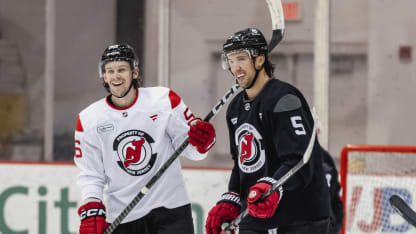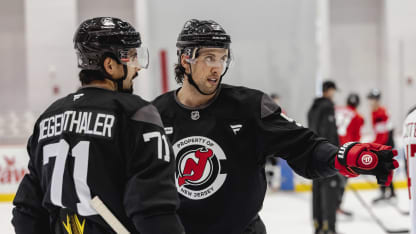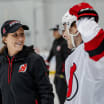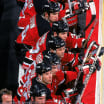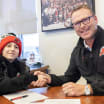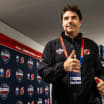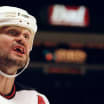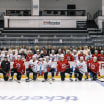When Brenden Dillon sees his two-year-old daughter Elton learning how to express herself, he’s reminded of something important to him.
“Communication,” Dillon, 33, said. “I’ve got a young daughter; I see her putting together words and learning how to talk. It’s not like you sit there with a book and say ‘Here’s how you communicate’. She’s picking things up.”
They may not be conversational sentences yet, but it’s giving Dillon more of a glimpse into the personality Elton is becoming and he’s experiencing it all with eager eyes. There’s something about communication, about language, that has always intrigued him. And language can be built on many different facets.
“I think just the different cultures of the world are so interesting,” Dillon said, asked about his intrigue.
Perhaps it all started as a kid. He grew up with a Portuguese nanny; she, her husband, and her son, all spoke Portuguese at home. Dillon would be dropped off at their home while his mother, a schoolteacher, and father, a pharmacologist, both went to work. He’d be immersed in their language all day long.
“She was full Portuguese, from Portugal,” he began to explain. “Her husband was Portuguese, her son – so all day long it was Portuguese. I have some memories of it, probably from about zero to six years old.”
That may have been where his fascination for language started. And it’s turned into a deep appreciation for the different cultures of our world and how we communicate with one another.
What lies beneath his appreciation for languages allows you to understand why he is a steward of any locker room. It’s part of how he thrives as a leader. He wants to know and understand the rooms he’s a part of.
You’ve got to figure out how to speak the same language.
No, not language in the literal sense. The language of a locker room is far beyond words and how we pronounce them. Language is about learning how you’re going to communicate with those around you, particularly when at first glance your commonalities may not be so obvious. And in a hockey locker room, where players arrive from all corners of the world, the different cultures that congregate in an NHL locker room is where it all begins.
“I always found it cool to be able to relate,” Dillon says, particularly of teammates who come from different parts of the world. “It’s hard, I put myself in their shoes - a lot of these guys come over at 19, 20 years old, you're drafted, or you're starting pro in North America where you don't understand a lick of English. So how could I possibly be helping people somewhere, if you don't know it. So, I feel like that's kind of my first thing is trying to look up, like, ‘hello’ in Swedish.”

